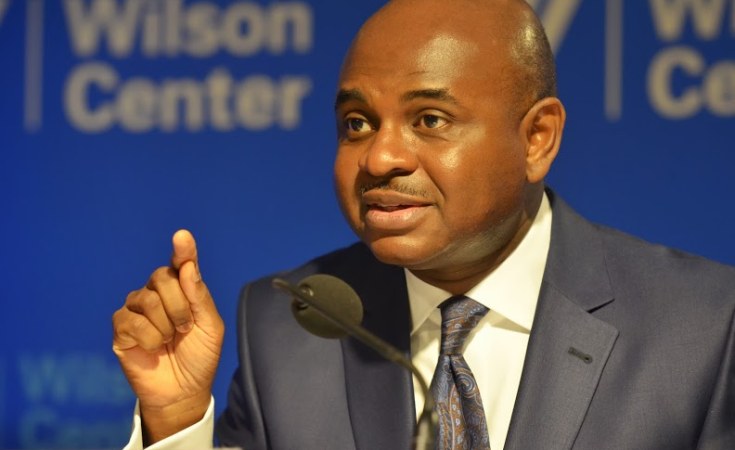Washington, DC — On a sun-soaked mid-August morning in the American capital - when attracting even a small gathering to a serious discussion of international economic affairs is considered near impossible - an overflow crowd squeezed into a 120-seat auditorium at the Woodrow Wilson International Center for Scholars.
The draw was Kingsley Chiedu Moghalu, Deputy Governor of the Central Bank of Nigeria, talking about Africa as the global economy's 'last frontier'. In an often provocative presentation, he contended that both those who see no prospect for African prosperity and those who want to celebrate Africa as a continent that has 'arrived' on the global stage are wrong.
Acknowledging that Africa has several of the world's fastest growing economies - often cited by Africa champions as a sign of 'Africa rising' - Moghalu argues that economic growth based on cyclical and unsustainable extractive industries and commodity sales conveys "a false sense of arrival".
Pointing to a syndrome he called "negative mattering", he said Africa matters to the world today primarily for the same reason it did during the slave trade and the colonial period: for what can be extracted and exported. "Africa should matter as a growth pole in its own right," he said - "as a contributor to global prosperity through its own economic transformation."
Moghalu believes that mono-product, extractive economies - ones built on oil or minerals, for example - make the few very wealthy, while the majority remain poor.
The benefits of growth, he says, must be spread more equitably.
Prosperity without inclusion, he warned, breeds both social conflict and economic woes.
Africa as a "last frontier" often means a continent ripe for profit-making through international trade and investment, Moghalu said.
But he warned that without coherent policies and regulation, Africa will not benefit as it should from those transactions.
"African states must take control of foreign investment policy and strategy and factor in their national interests, and therefore [they should] direct foreign investment to the areas that are truly in their own national priority interests, not according to the priorities of foreign investors," he said.
He also called for a paradigm shift in the minds of Africans. "Nothing short of the reinvention of the African mind will make Africa prosper.
That's why the battle is in the mind and for the mind," Moghalu said.
"That mind must see the world in a different way, and see Africa in the world in a different way if Africa is to develop." Africans must develop their own vision for economic transformation and their own philosophical foundation of prosperity, and "manufacture the consent" of their citizens to make it happen. "If you don't have that conception of why worldview is important, you will not be able to come at governance with the seriousness that will create prosperity".
Many people think democracy is "the best thing since sliced bread," but the western economic model is not inherently superior, Moghalu argued.
Other models may seem wrong from a certain worldview but work equally well for generating wealth. Asian economies grew - and citizens prospered - on a fundamentally different economic and political model.
Democracy, he said, is not in itself a recipe for economic progress. "If you want to pursue democracy, you better pursue democracy because you think democracy is a good thing, not because you think it is going to make you wealthier than a dictatorship," Moghalu said. "A lot of people are democrats, but they are hungry."
Africa can rise, Moghalu said. But for that to happen, there needs to be an understanding that globalization is not neutral, and right now Africa is a passenger--not a driver--in the world economy. African countries will not become drivers until they develop industrial manufacturing economies that are diverse and complex.
In a largely complimentary official response to the presentation, American University's Carl LeVan took issue with the idea that industrialization is central to Africa's development. He pointed out that major economies are moving from industrial to service economies and asked if Africa might move directly into a service-sector growth model.
Moghalu's opinion was clear. You cannot become post-industrial, he said, before you are industrial. LeVan's questioning whether the move away from manufacturing in more developed economies could offer opportunities for Africa to fill a gap met with firm agreement.
Moghalu's latest book, Emerging Africa: How the Global Economy's 'Last Frontier' Can Prosper and Matter, engages the topic in more depth.
Intentionally published first in Africa, for Africans, by Nigeria's Bookcraft, the volume is also available from Amazon UK. A U.S. edition is expected to be published next year.
-----
Kingsley Moghalu's appearance at the Wilson Center was co-sponsored by the Center's Africa program and by AllAfrica.com.


